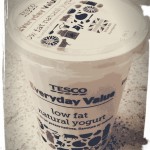 Zonulin is an important protein that maintains the integrity of the gut wall in humans. It is secreted by enterocytes and its production is stimulated by probiotics. Probiotics are microorganisms found in foods that can colonise the human gut. The human gut contains about a pound of bacteria, most of which lives in the large intestine. Colonisation of the large intestine by beneficial strains of bacteria prevent the reproduction of pathological bacteria and other microorganisms such as yeast which can lead to infections and intestinal disorders. Pathogenic bacteria can secrete toxins that interfere with transcellular epithelial integrity and this results in leaky gut syndrome. For example, vibrio cholerae, the organism that causes cholera, can secrete a protein called the zonula occludens toxin that targets the zonulin protein in the tight junctions of the intestinal cell wall. As zonulin is targeted, it breaks down and the tight junctions between the intestinal cells become leaky. High plasma levels of zonulin are a biomarker for the leakiness of the gut (figure 1).
Zonulin is an important protein that maintains the integrity of the gut wall in humans. It is secreted by enterocytes and its production is stimulated by probiotics. Probiotics are microorganisms found in foods that can colonise the human gut. The human gut contains about a pound of bacteria, most of which lives in the large intestine. Colonisation of the large intestine by beneficial strains of bacteria prevent the reproduction of pathological bacteria and other microorganisms such as yeast which can lead to infections and intestinal disorders. Pathogenic bacteria can secrete toxins that interfere with transcellular epithelial integrity and this results in leaky gut syndrome. For example, vibrio cholerae, the organism that causes cholera, can secrete a protein called the zonula occludens toxin that targets the zonulin protein in the tight junctions of the intestinal cell wall. As zonulin is targeted, it breaks down and the tight junctions between the intestinal cells become leaky. High plasma levels of zonulin are a biomarker for the leakiness of the gut (figure 1).
Figure 1. Possible regulation of gut leakiness by zonulin and the effects of probiotic microorganisms.
Because beneficial bacteria colonise the gut and compete with pathogenic bacteria for nutrition, they can inhibit their growth. Therefore it has been hypothesised that supplementation with probiotics in humans should lower rates of infection. Indeed, researchers have investigated the effects of probiotics by assessing their effects on postoperative infection. For example in one study1, 150 patients with colorectal cancer were administered either a placebo or a probiotic supplement in a random fashion 6 days prior to an operation and for 10 days postoperatively. The researchers then measured the infection rate and gut leakiness in the subjects following the operation. The results showed that probiotic (2 grams per day of 260 trillion bacteria) significantly lowered circulating levels of the protein zonulin, compared to the placebo. In addition, the postoperative infection and pyrexia rates were significantly lowered by treatment with probiotics when compared to the placebo. Markers for cytokine stress were also lower in the probiotic group.
Given the nutritional research into the beneficial effects of probiotic supplements it is surprising that more trials have not been performed to assess their effects on postoperative infection rates. One of the important aspects of this study was the use of zonulin as a marker for gut leakiness and its association with postoperative infection. Interestingly, the rate at which normally gut based bacteria were translocated into the sterile tissues of the gut was 28% in the control group and 13 % in the treatment group. This suggests that the transcellular gap junction permeability is inhibited by probiotics and this decreases the potential for pathogenic bacteria to translocate through the gut wall and into the tissues where they can cause infection. Although supplements of probiotics were used in this study, some foods contain high levels of beneficial microorganisms that can colonise the human gut. In particular some types of yoghurt contain live cultures that have been shown to be colonise the human gut and these may be just as beneficial if consumed long term.
RdB

